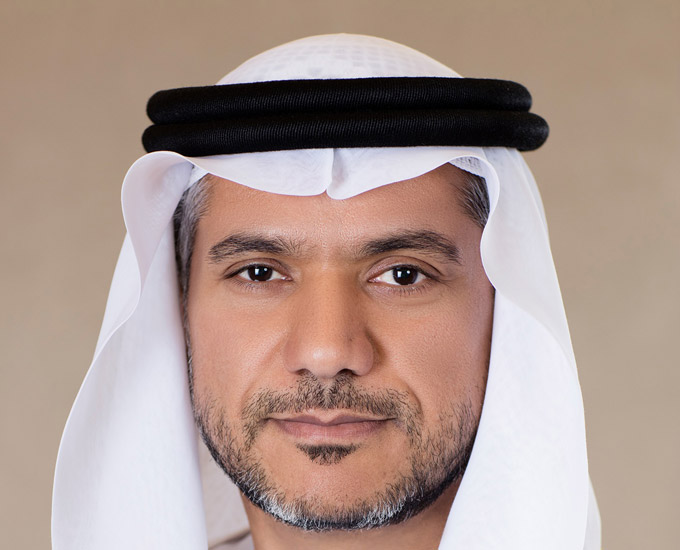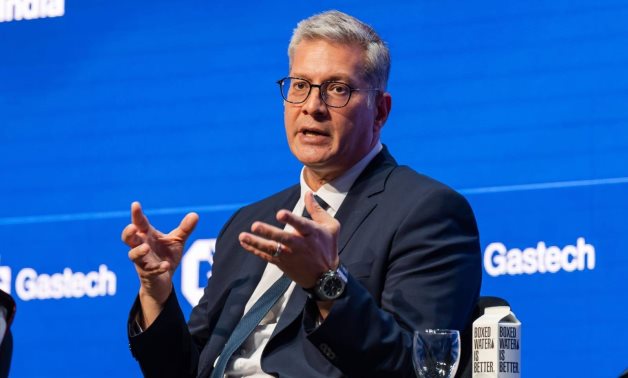Energy

Exploration: Key to South Africa’s growth

South Africa’s mining, minerals and exploration industry has historically been the backbone of the economy. Despite the challenges the industry faces, such as changes in commodity prices, energy instability, and regulatory inefficiencies, the sector does have the potential for transformation and the discovery of new reserves. Minerals Council of South Africa CEO, MZILA MTHENJANE, has been at the tip of the spear for the past 15 months leading this change. He shares his insights with PENELOPE MASILELA.
Mthenjane has more than 30 years of combined experience in the resources business (gold, platinum and coal) and investment banking (corporate and project finance). However, his appointment as CEO of the Minerals Council of South Africa in June 2023 placed him at the centre of the industry’s transformation. Speaking about his leadership journey, Mthenjane says, “When I took over the role of CEO of the Minerals Council, I had one clear vision: to ensure that mining exploration, a vital pillar for the growth of South Africa’s mining industry, would regain its former prominence. South Africa has some of the richest mineral deposits in the world, and we need to invest in exploration to tap into these resources for the future of the country.” His administration has centred on policy changes to stimulate investment in exploration, such as championing the simplification of regulations and creating a more inviting environment for investors. With his leadership, the Minerals Council has been fostering dialogues among government, the mining sector, and labour for shared benefits across the board.
Mining exploration
In South Africa, ongoing exploration is vital for mining and economic viability, environmental responsibility, and social delivery. Mthenjane highlights that exploration is not just about finding minerals; it’s about building a foundation for the nation’s long-term prosperity. “Exploration is crucial because it is the only way we will discover new mineral deposits. Without exploration, there can be no new mines and without new mines, the sector’s sustainability is at risk. Although the capital raised during the exploration phase is initially small, it has a much larger multiplier effect when it transitions into a fullscale mine,” Mthenjane explains. South Africa has abundant mineral deposits, such as gold, platinum group metals (PGMs), coal, manganese, vanadium, several industrial minerals and rare earth elements, to name a few.
However, a delay in exploration investment in the past years has resulted in a medium to long-term growth gap. This gap has meant that many of the country’s existing mines are approaching the end of their economic lifespans, with few new projects coming online. He further explains that mining exploration plays a vital role in contributing to South Africa’s GDP, both historically and in the short to long term. In the short term, exploration injects new capital into the country from domestic and foreign direct investment (FDI), which is crucial for job creation and boosting local economies. Exploration activities often lead to the development of support industries, such as drilling services, legal expertise, hospitality and road logistical operations, providing diverse and additional employment opportunities for South Africans. “In the long term, successful exploration can lead to the development of new mines, which generate substantial revenue through mineral extraction. This revenue supports a wide range of economic activities, from employment in the mines and its value chains to the investment and development of much-needed logistics infrastructure like roads, railways, ports and energy generation and transmission.
This infrastructure supports mining operations and benefits the surrounding communities by providing access to essential utility services like electricity, water, and transportation, enabling the provision of several social services, such as health and education by the government. “The South African mining industry currently accounts for more than 50% of the country’s export revenue. Mining projects create sustainable jobs and infrastructure for communities once explored, as mining typically operates in rural areas, which are often underdeveloped. Mining projects also plan to build supporting infrastructure, such as energy, electricity, roads and railways. “Water is an essential requirement in mining, and mines contribute to the bulk infrastructure that provides water at the mines. When mines develop, they work with local governments to ensure these services are also available to the surrounding communities,” he adds.
Mthenjane emphasises that job creation and economic growth generated by mining exploration extend beyond the mines. The spin-off benefits include everything from retail jobs to skilled jobs in engineering, finance, and environmental services. He stresses that exploration is an engine for growth. His strategy as CEO has been to drive the reform process, which leads to a more favourable environment for mining companies to invest in exploration. In South Africa, challenges such as lengthy permitting processes, inconsistent regulatory frameworks, and high energy costs have deterred many potential investors. Mthenjane believes these hurdles can be overcome with the right policies, allowing the mining sector to flourish. One of the primary challenges facing the mining exploration sector is the slow and often cumbersome regulatory approval process. In South Africa, licences and regulations of mining practices are under the jurisdiction of several different government departments, resulting in a lack of efficient processes.
Mthenjane and his team at the Minerals Council have been at the cutting edge of the streamlining processes, suggesting a “one-stop shop” solution whereby mining companies would deal with only one central authority rather than several government departments. “Mining companies are frequently boxed in by complexity, which delays exploratory projects and increases needless expenses. Mthenjane says: “We need to simplify the regulatory environment so investors can move quickly and efficiently through the process. South Africa should be an investment destination and location where investors want to be,” he continues. “The energy shortage in South Africa is being overcome, and increasingly will no longer be a constraint on mining and exploration activities.
However, the rising electricity supply costs have made it difficult for mining companies to operate at full capacity. Mining activities are energy consuming and especially susceptible to the energy issues of a country.” Mthenjane is complimentary of the greater collaboration between the mining industry (and broader business sector) and the government to develop and increase renewable energy solutions, particularly solar and wind, to power mining operations, which have contributed to the stability of the national grid. “Reliable and affordable electricity is fundamental for the success of exploration projects and mining operations. The legislative innovation to simplify the process for renewable energy projects of less than 100MW was a master stroke, which has secured energy for the mining sector and embraced renewables. This is also contributing to the country’s long-term social and economic sustainability in terms of reduction of carbon emissions,” Mthenjane notes.
Sustainability and environmental responsibility
Environmental concerns are another area under increasing scrutiny in the mining industry, including during exploration activities. The environmental impact of mining, such as land degradation, water usage, and waste management, is a significant consideration. Mthenjane says mining companies are developing methods to minimise environmental impacts through effective stakeholder relationship management. They communicate the potential impacts of mining and address them in an environmental management report approved before the exploration and mining activities start. This helps to address any anticipated environmental impacts and provides possible solutions. “Innovation is also emerging in response to environmental impacts. The concept of naturebased solutions is an innovative way to mine and rehabilitate mines and facilities, ensuring long-term, positive environmental impacts.
This approach provides for future economic opportunities, as it ensures the mining process is enduring and profitable and prepares for economic succession that will continue to support local livelihoods. The approach is reimagining mine closure to incorporate social and economic opportunities of a mine coming to the end of its life, and not only environmental considerations. “Understanding the difference between exploration and mining is crucial for minimising environmental and social impacts. Exploration has minimal environmental impact, but as the mining industry progresses to extraction, we must prioritise environmental stewardship,” concludes Mthenjane. “The future of mining in South Africa lies in developing innovative technologies and practices that minimise environmental harm and rehabilitate mining areas concurrent with mining where possible and post-extraction. Responsible mining benefits both the economy and the environment, with better and sustaining outcomes for society.”












